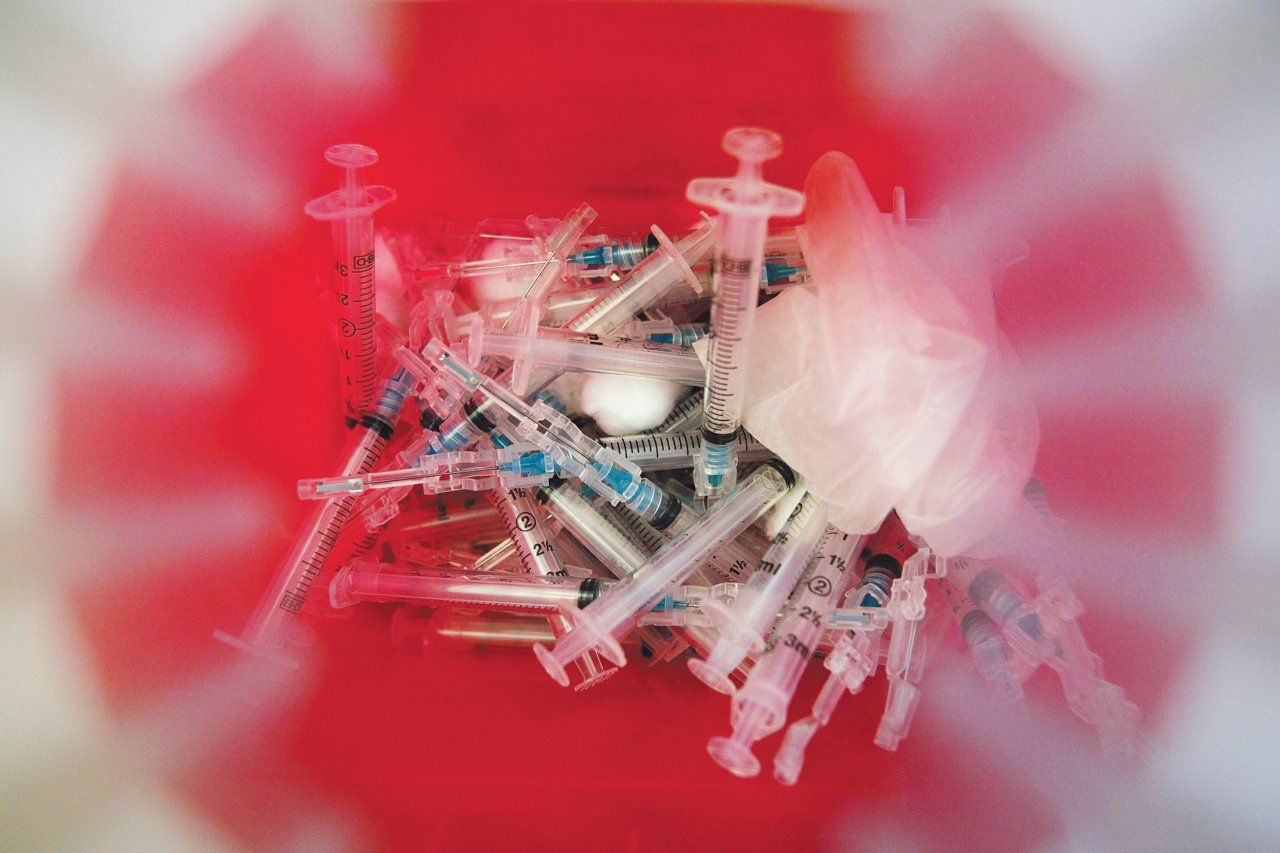
The u.s. centers for Disease Control and Prevention recently launched the One and Only Campaign, an endeavor aimed not—as the name might suggest—at promoting marital monogamy, but rather at reducing the improper reuse of certain medical devices. By its estimate, well over 100,000 Americans in the last decade have been exposed to infections such as hepatitis and HIV because of unsafe injections, such as reused needles or vials of medicine that have been dipped into more than once. These exposures have resulted in dozens of increasingly well-publicized outbreaks, such as the 21 cases of hepatitis C spread from one dialysis center in New Jersey. Indeed, the CDC now has a website to keep the public informed of the latest trouble.
To limit possible risk, the CDC, in its new campaign, has suggested a simple approach to injections: "one needle, one syringe, only one time." Seems like a straightforward initiative without a countervailing point of view, right?
Maybe not. Meet the green health-care crowd, a serious and longsighted group who frets over the staggering amount of medical waste produced—about 7,000 tons a day, or 2.5 million tons annually, enough to spawn a $3 billion health-care-waste-management industry. While they aren't pushing the reuse of needles, they believe that recycling as much medical equipment as is safely possible is the best way to reduce the landfills of hospital waste and prevent boats loaded with medical trash from drifting port to port in search of a willing or financially strapped country to accept our discards.
Recycling by resterilization has a longstanding precedent in health care, and none of the outbreaks reported thus far has been related to properly recycled medical equipment. High-ticket items like bronchoscopes and endoscopes that cost far too much to toss out after every use are reprocessed through carefully prescribed, heavily regulated steps. Building on this approach, current medical-waste recyclers are looking to put other invasive equipment—not needles or syringes, but certain types of surgical tools—back into circulation after a good scrubbing. Plus, by picking cheaper equipment to rework—stuff that can be disassembled, sterilized, and reassembled or else tossed away if too messy—they can throw it out if they can't get it right. That way, they are less likely to stumble over a problem faced by U.S. Veterans Affairs hospitals that recently were investigated because of possible spread of HIV and hepatitis related to improperly cleaned endoscopes.
Inevitably the two initiatives—clean and green—will collide, even though both are acting on behalf of protecting the public's health. It's a debate between those seeking immediate reward (don't give me a dangerous infection) and those with a longer view (please leave some of the earth inhabitable). Current methods appear adequate to guarantee sterility for the shortlist of items already put onto the recycling merry-go-round. The trick will be to maintain the same caution and sober, deliberate science as the list lengthens. Because unlike glass bottles and mounds of flattened cardboard, in this corner of the recycling market, there is no margin for error.
Dr. Kent Sepkowitz is an infectious-disease specialist in New York City.
Uncommon Knowledge
Newsweek is committed to challenging conventional wisdom and finding connections in the search for common ground.
Newsweek is committed to challenging conventional wisdom and finding connections in the search for common ground.





